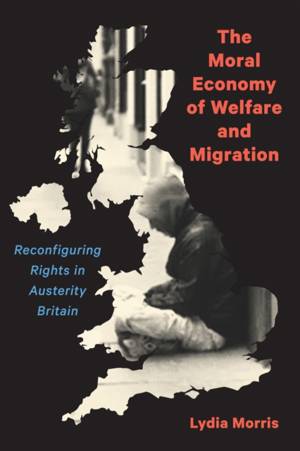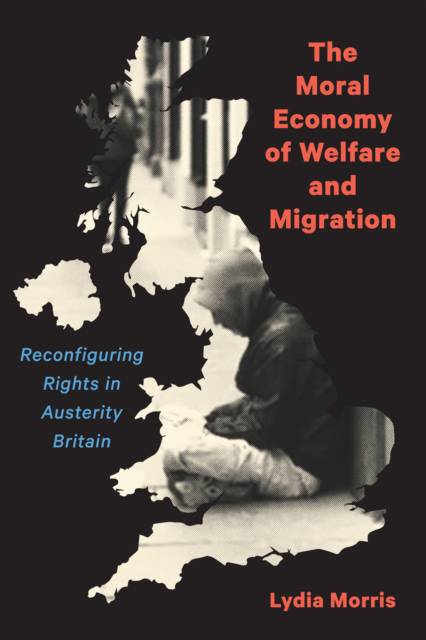
- Afhalen na 1 uur in een winkel met voorraad
- Gratis thuislevering in België vanaf € 30
- Ruim aanbod met 7 miljoen producten
- Afhalen na 1 uur in een winkel met voorraad
- Gratis thuislevering in België vanaf € 30
- Ruim aanbod met 7 miljoen producten
Zoeken
Moral Economy of Welfare and Migration
Reconfiguring Rights in Austerity Britain
Lydia Morris
Paperback | Engels
€ 53,45
+ 106 punten
Omschrijving
Britain's coalition government of 2010-2015 ushered in an enduring age of austerity and a ""moral mission"" of welfare reform as part of a drive for deficit reduction. Stricter controls were applied to both domestic welfare and international migration and asylum, which were presented as two sides of the same coin. Policy in both areas has engaged a moral message of earned entitlement and invites a sociological approach that examines such policies in combination, alongside their underpinning moral economy. Exploring the idea of a moral economy - from its original focus on popular rebellion at the rising price of corn to more contemporary analysis of measures that seek to impose moral values from above - Lydia Morris examines Britain's reconfigured pattern of rights in the fields of domestic welfare and migration. Those in power have claimed that heightened conditions and sanctions for the benefit-dependent domestic population, both in and out of work, will promote labour market change and reduce demand for low-skilled migrant workers, often EU citizens, whose own access to benefits was curtailed prior to Brexit. Morris traces related political discourse through to the design and implementation of concrete policy measures and maps the diminished access to rights that has emerged, paying particular attention to the boundaries drawn in defining target groups, and the resistance this has provoked. The Moral Economy of Welfare and Migration considers the topology of the whole system to highlight cross-cutting devices of control that have far-reaching implications for how we are governed as a total population.
Specificaties
Betrokkenen
- Auteur(s):
- Uitgeverij:
Inhoud
- Aantal bladzijden:
- 280
- Taal:
- Engels
Eigenschappen
- Productcode (EAN):
- 9780228006633
- Verschijningsdatum:
- 15/08/2021
- Uitvoering:
- Paperback
- Formaat:
- Trade paperback (VS)
- Afmetingen:
- 152 mm x 226 mm
- Gewicht:
- 417 g

Alleen bij Standaard Boekhandel
+ 106 punten op je klantenkaart van Standaard Boekhandel
Beoordelingen
We publiceren alleen reviews die voldoen aan de voorwaarden voor reviews. Bekijk onze voorwaarden voor reviews.











